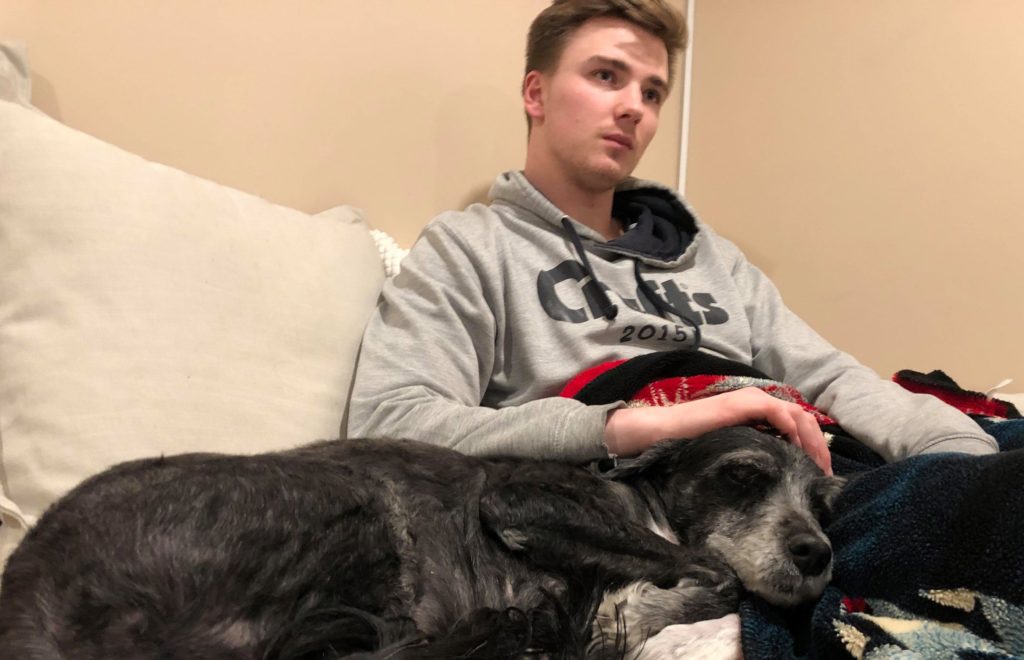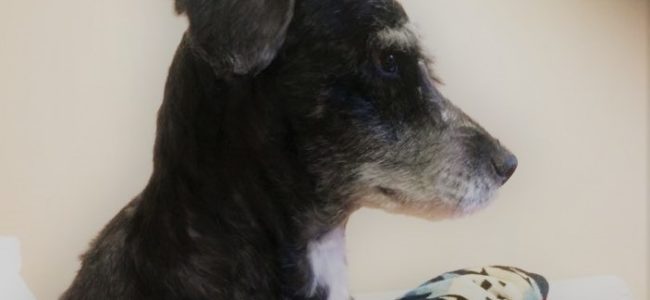As a 2nd instalment to our uplifting stories about animals during the pandemic, I am going to tell you about Cougar, a 12 year old Porty (Portuguese water dog) who is owned by one of Canada’s first PWD breeders, Glenda. Well, Cougar is more likely owned by her son, Colin, who in his early 20’s, keep her while studying at university.
Over the years we sometimes get to know our clients more as friends than as clients. Glenda and I are one of those. We see each other rarely, but enjoy each other’s company outside of the clinic for our annual Christmas broomball game, which often leads to dinner, and quite often we have broken bread at Thanksgiving. Glenda taught our whole family Scottish dancing for a few years (I can do a mean sword dance, or so I think!). I have had the privilege of seeing Colin grow from a little boy to a handsome young man. Just recently he spent some time at the clinic to see if he would like veterinary medicine. I am please to say that he is in his first year at the U. of M. as a young vet student. I hope that I am partially responsible for his decision (!)

At the beginning of the Pandemic, in a series of unfortunate events, Colin was off to meet his mother in the UK for Crufts, one of THE dog shows. Glenda currently lives in Italy working for the UN. Just before he left, his beloved companion started to fall over to the left.
Idiopathic vestibular syndrome is one of those diseases that until recently, we did not know the cause. Now with the advent of MRI’s and higher imaging, a lesion can be seen on the brain affecting the dogs balance. It is thought to be similar to the human stroke, and comes on very quickly. Characteristically, the dogs’ eyes go back and forth very quickly, causing dizziness and inability to walk. They circle and fall over to the affected side. They feel nauseous, and when asked, I tell clients to flick their eyes side to side 20 times quickly. You then understand where the nausea comes from, rather like a ride at an amusement park (I personally have never liked those ones that cause centrifugal force).
The good news is, for the majority, similar to strokes in human, most will resolve in 5-7 days. The only treatment needed is nursing care and anti-nausea medications. Sometimes IV fluids to support, and hand feeding. In my mind, a diagnosis (which can be costly) is only academic – if it doesn’t get better, it is bad news. Tincture of time is my suggestion.
It did take a full week for Cougar to recover, and it was a coordinated effort from Italy, the UK and Montreal where Colin’s dad had to do most to the immediate care. But I was happy to receive this lovely video just last week of her outside playing with one of her grandsons. Most important, is her lying supporting her young, soon to be a vet, person.

